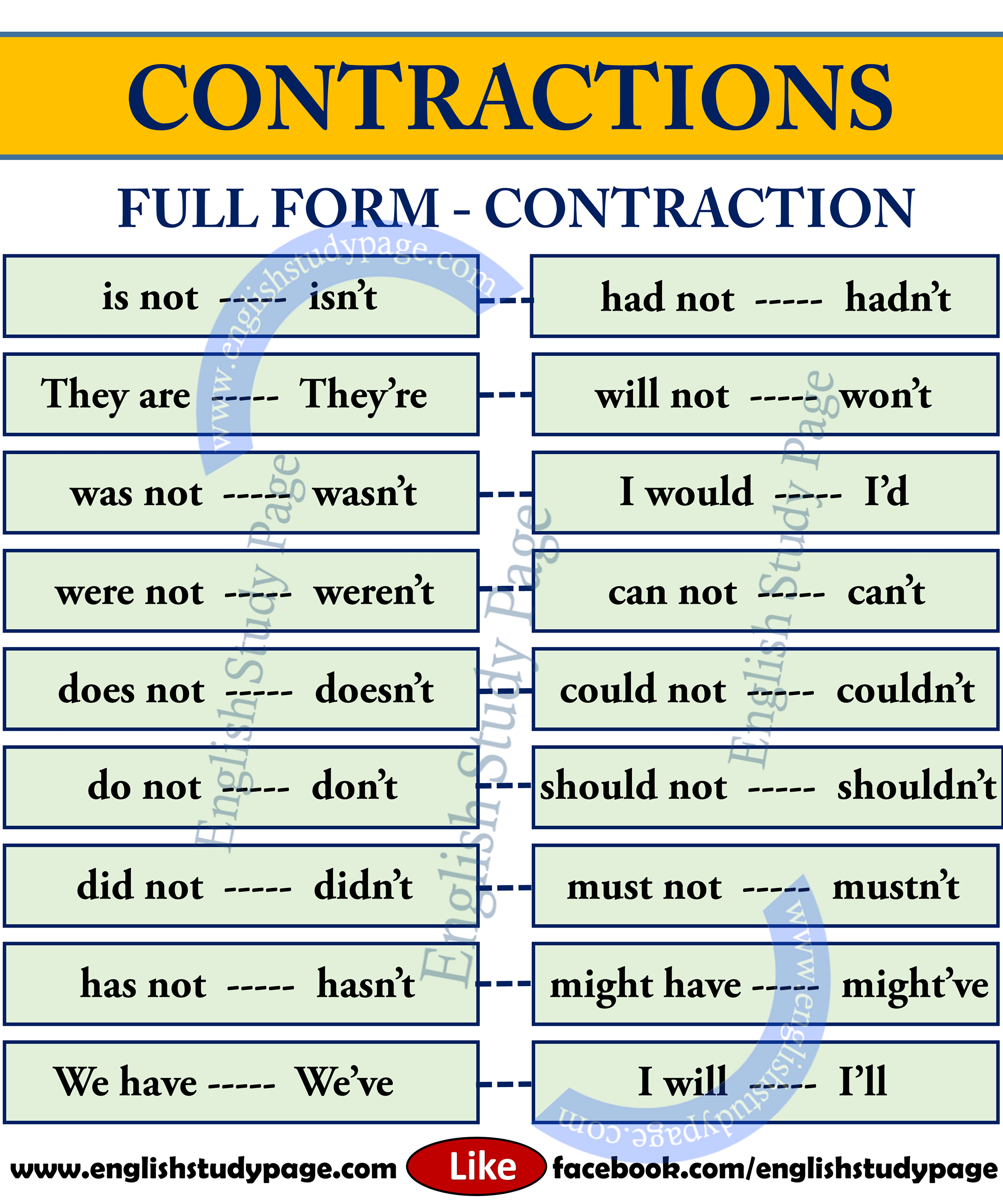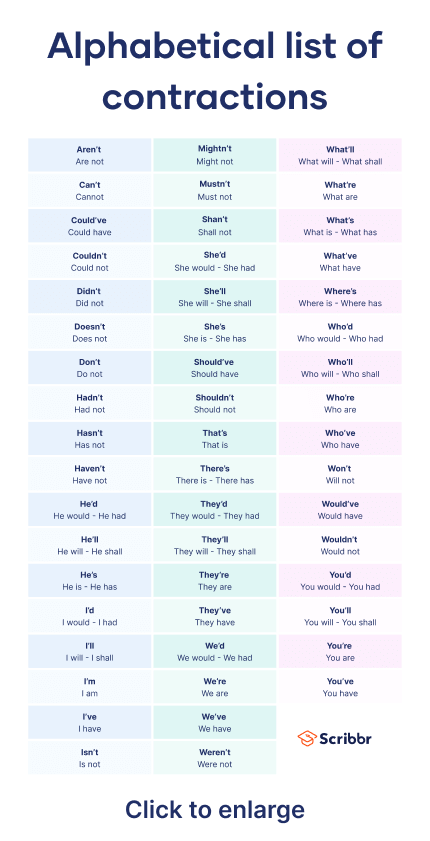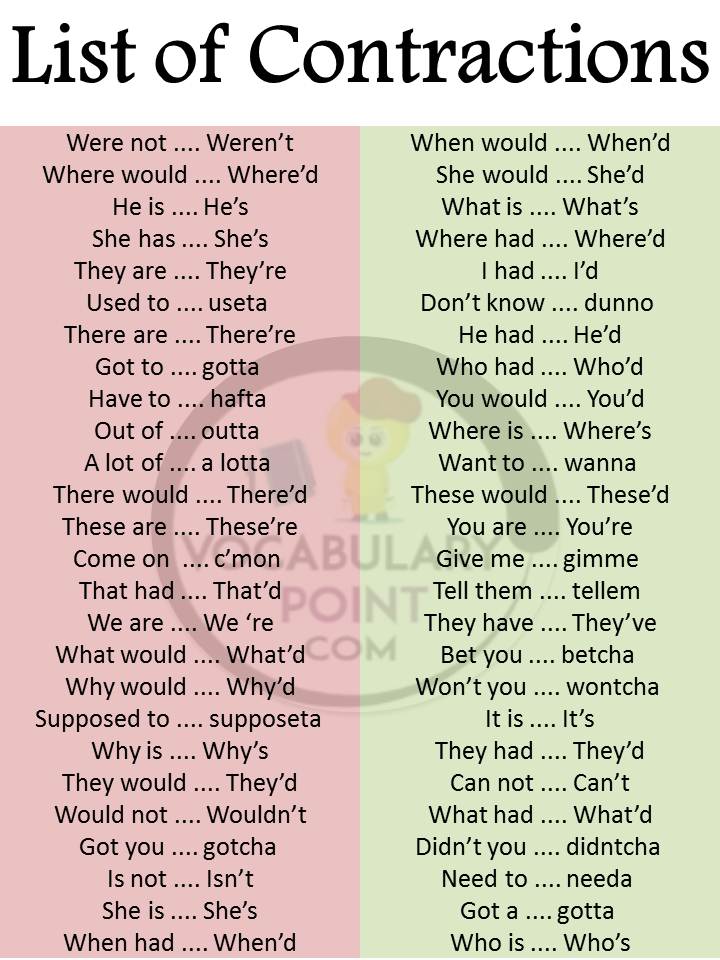Last update images today Mastering English Contractions: A Complete Guide
Mastering English Contractions: A Complete Guide
Introduction: Contractions in English
Are you struggling to understand and use contractions in English effectively? This guide will break down everything you need to know, from the basics to more nuanced usage. Mastering contractions in English will significantly improve your fluency and comprehension. This comprehensive overview about contractions in english is designed for English language learners of all levels, from beginners to advanced speakers looking to refine their skills. Let's dive in!
What Are Contractions in English?
Contractions in English are shortened versions of words or phrases, where letters are omitted and replaced with an apostrophe. They are very common in spoken and informal written English. Understanding and using them correctly is crucial for effective communication. Understanding the rule of contractions in english is very essential.
Examples:
- is not becomes isn't
- I am becomes I'm
- will not becomes won't
- they are becomes they're
Why Use Contractions in English?
Using contractions in English makes your speech and writing sound more natural and conversational. They are also more efficient, saving time and effort by combining two words into one. However, it's important to know when contractions in english are appropriate, as they are generally avoided in formal writing, such as academic papers or legal documents.
Common Contractions in English with Pronouns
Many common contractions involve pronouns and auxiliary verbs (helping verbs).
- I'm (I am): I'm going to the store.
- You're (You are): You're a great student.
- He's (He is/He has): He's here. / He's been working hard.
- She's (She is/She has): She's happy. / She's finished her work.
- It's (It is/It has): It's raining. / It's been a long day.
- We're (We are): We're going to the park.
- They're (They are): They're my friends.
Using these contractions in english helps to sound more fluent.
Common Contractions in English with Auxiliary Verbs
Auxiliary verbs like is, are, am, has, have, will, would, had, did, do are frequently contracted.
- Isn't (is not): It isn't fair.
- Aren't (are not): They aren't coming.
- Wasn't (was not): He wasn't there.
- Weren't (were not): They weren't invited.
- Hasn't (has not): She hasn't arrived yet.
- Haven't (have not): We haven't seen that movie.
- Won't (will not): I won't be late. (Note the irregular form)
- Wouldn't (would not): I wouldn't do that.
- Couldn't (could not): I couldn't hear you.
- Shouldn't (should not): You shouldn't eat that.
- Didn't (did not): I didn't know.
- Don't (do not): Don't touch that!
- Doesn't (does not): She doesn't like coffee.
- I'd (I would/I had): I'd like some tea. / I'd already finished.
- You'd (You would/You had): You'd better hurry. / You'd seen it before.
- He'd (He would/He had): He'd love to come. / He'd gone home.
- She'd (She would/She had): She'd be happy to help. / She'd eaten lunch.
- We'd (We would/We had): We'd go if we could. / We'd left already.
- They'd (They would/They had): They'd be excited. / They'd tried their best.
Mastering this auxiliary verbs about contractions in english is necessary to elevate skills.
Contractions in English: 'Will' and 'Would'
These are tricky but essential.
- I'll (I will): I'll call you later.
- You'll (You will): You'll enjoy the movie.
- He'll (He will): He'll be here soon.
- She'll (She will): She'll help you.
- It'll (It will): It'll be fun.
- We'll (We will): We'll see you tomorrow.
- They'll (They will): They'll be late.
Understanding the contraction rules of 'will' and 'would' is important in contractions in english.
When NOT to Use Contractions in English
While contractions are common, there are situations where they should be avoided:
- Formal Writing: In academic papers, business reports, and other formal documents, use the full forms (e.g., is not, cannot, will not).
- Emphasis: Sometimes using the full form can add emphasis. For example, "I am going!" emphasizes the speaker's intention.
- Negative Questions (Sometimes): While Isn't it...? is common, in very formal settings, Is it not...? might be preferred.
- Legal documents: Avoid using contractions in english in legal documents.
Contractions in English: Confusing Pairs (Its vs. It's, They're vs. Their vs. There, You're vs. Your)
These homophones are a common source of errors.
- It's (It is/It has): It's raining. Its (possessive): The dog wagged its tail.
- They're (They are): They're coming over. Their (possessive): That's their house. There (location): The book is over there.
- You're (You are): You're doing great! Your (possessive): Is that your car?
These contractions in english commonly confused but it is important to understand the differences.
Practice Makes Perfect: Using Contractions in English
The best way to learn contractions is to practice! Try these exercises:
- Rewrite these sentences using contractions:
- I am not going to the party.
- They are happy to see you.
- He will arrive tomorrow.
- She has finished her homework.
- Identify the correct word in these sentences:
- (Its/It's) a beautiful day.
- (Your/You're) the best!
- (Their/There/They're) going to the beach.
Advanced Usage of Contractions in English: Uncommon Forms
Some less common contractions exist, primarily in informal speech:
- 'tis (it is) - Very archaic, rarely used today.
- 'twas (it was) - Also archaic.
- 'twere (it were) - Very rare and archaic.
- gonna (going to) - Very informal, often considered slang.
- wanna (want to) - Informal.
- gotta (got to) - Informal.
- hafta (have to) - Informal.
- kinda (kind of) - Informal.
- sorta (sort of) - Informal.
Avoid these unless you're sure of the context and audience.
Celebrities Who Use Contractions in English (Naturally!)
Many public figures use contractions frequently in interviews and casual conversations. A good example is Taylor Swift, an American singer-songwriter.
Taylor Swift: Born December 13, 1989, Taylor Swift is known for her narrative songwriting, often drawing from personal experiences. She has achieved critical and commercial success throughout her career, winning numerous awards, including multiple Grammy Awards.
Watching interviews with native English speakers, like Taylor Swift, can help you get a better feel for the natural use of contractions in everyday speech. Listen for how frequently they use contractions and in what contexts.
Conclusion: Contractions in English
Mastering contractions is a key step towards fluency in English. By understanding the rules and practicing regularly, you can improve your communication skills and sound more natural. Remember to consider the context and audience to use contractions appropriately. This contractions in english article will really helps you to understand the rule and improve your grammar.
Keywords: contractions in english, english grammar, learn english, english contractions list, it's vs its, they're their there, you're your, english speaking tips, taylor swift, informal english, formal english, auxiliary verbs, pronouns.
Summary: This article explained the use of contractions in English, covering common forms, usage rules, and confusing pairs. Who is Taylor Swift? Taylor Swift is a famous American singer-songwriter.
Contractions List In English English Grammar Here Contractions List Contractions Grammar List CONTRACTIONS Master 43 Contractions In English With The Expanded Form Contractions In English English Detailed List Of Contractions Word Contraction Are Not Aren T 51baeec26bb67e40959beb2a2792f8eb List Of Contractions In English English Study Page Contractions In English 100 List Of Contractions In English Vocabulary Point Slide1 8 Top 70 Most Popular Contractions In English With Examples ESLBUZZ Important Contractions List 768x691
Contractions In English What Is A Contraction ESL Kids World Contractions Poster What Is A Contraction Grammar Definition Examples And PDF Contractions 768x432 Contractions In English YouTube Maxresdefault Contractions List In English 7ESL ALPHABETICAL LIST OF CONTRACTIONS English Contractions List Detailed List Lessons For English English Contractions List Detailed List 512x1024 Grammar Writing Toolbox Don T Let Contractions Confuse You Contraction Chart With Shurley English List Of Contractions 70 Most Important Contractions In English Love List Of Contractions 2 1 150x79
ESL Beginners Lesson Learn Contractions In English By ESL Adult Workshop Original 9921150 4 What Are Contractions In English Grammar Contractions Commonly Used Informal English 1692651 V1 8415dc9952f04e08b9d5259e167e0051 The Popularity And Purpose Of Contractions Immigo 65283c48a0c271344fcaee6b Popularity And Purpose Standard Contractions In English Learn The Basic Contractions With Maxresdefault Common Contraction Used In English English Grammar Lesson English E4a61c3962935b7de1a0b0320aa40d60 Contractions English Grammar IKen IKenEdu IKen App YouTube Maxresdefault Master 43 Contractions In English With The Expanded Form Contractions In English 2 Detailed Contractions List In English English Grammar Here English 664fb1420155f0679ab90577ac60ff2f
100 List Of Contractions In English Vocabulary Point Slide2 8 Contractions In Grammar Worksheets FREE The Mum Educates Grammar 9e962e5f2dd582f5ad166627924bbfbf Contractions English ESL Worksheets 9d568304ffde4bcb2dcae2de8fe2d880 Contractions Grammar Definition Examples Contractions Grammar Preview.webpContractions In Grammar Why Do We Use Contractions In English 7ESL Contraction 1 1024x536 Detailed Contractions List In English PDF Worksheet For Students And C9c42559fa321812296955b45ef308c9 English Contractions Chart Table EngDic Contractions Chart
An English Worksheet With The Words And Phrases Used To Teach Children 5d843479ee85eb5dac3b0235ef04d673 70 Contractions Every English Intermediate Learner Must Know YouTube Maxresdefault English Contractions Chart Digital Files A1 A2 A3 A4 Etsy Australia Il 570xN.2311608342 T157



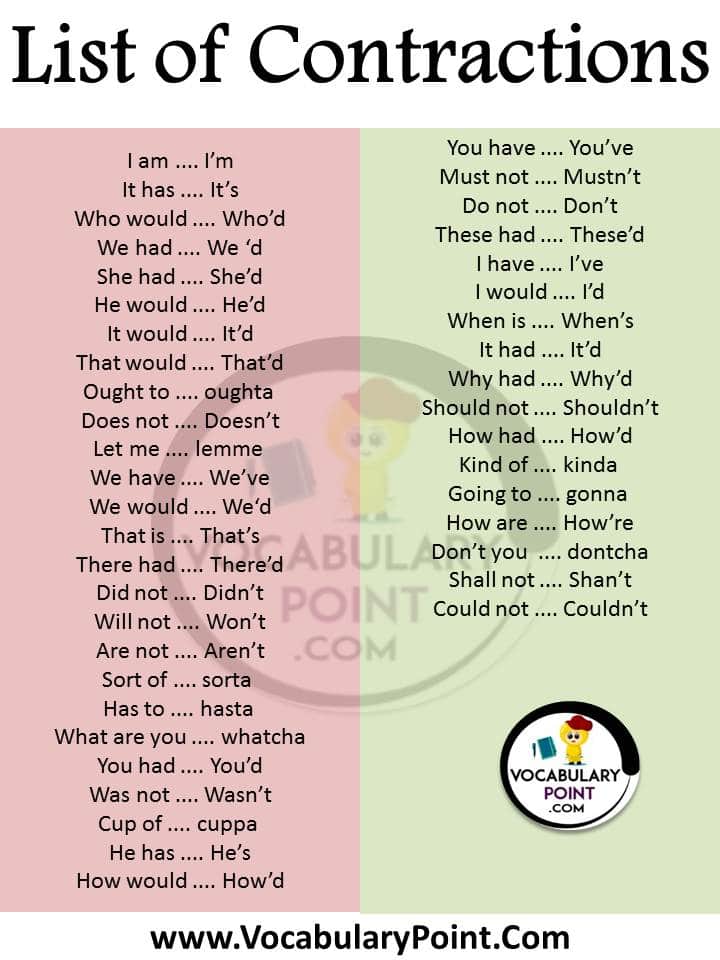
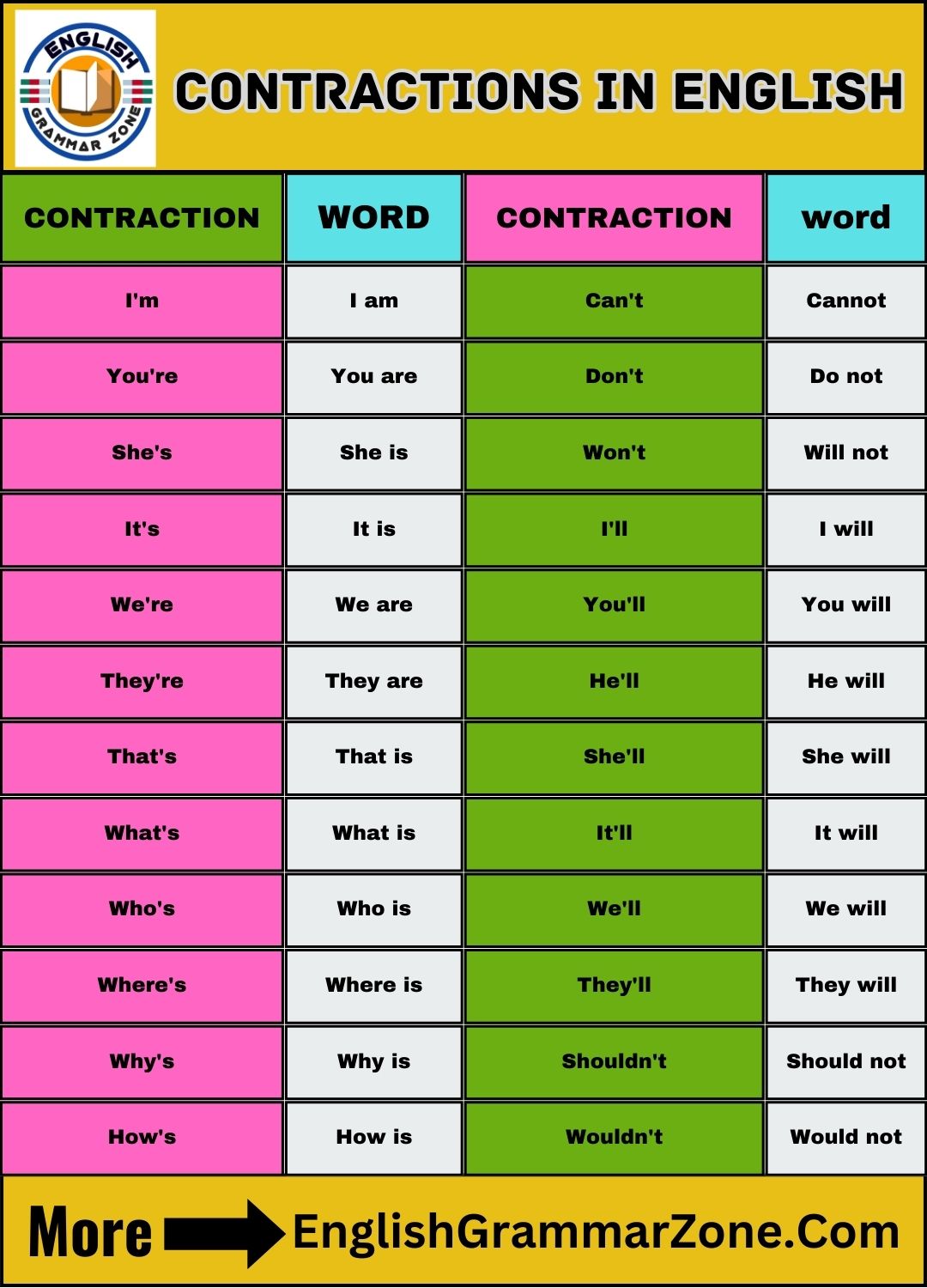




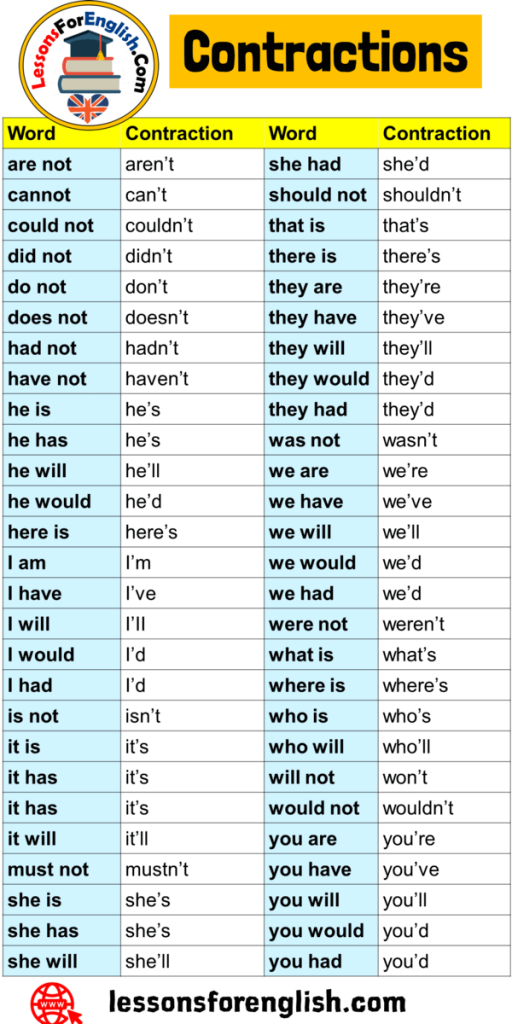
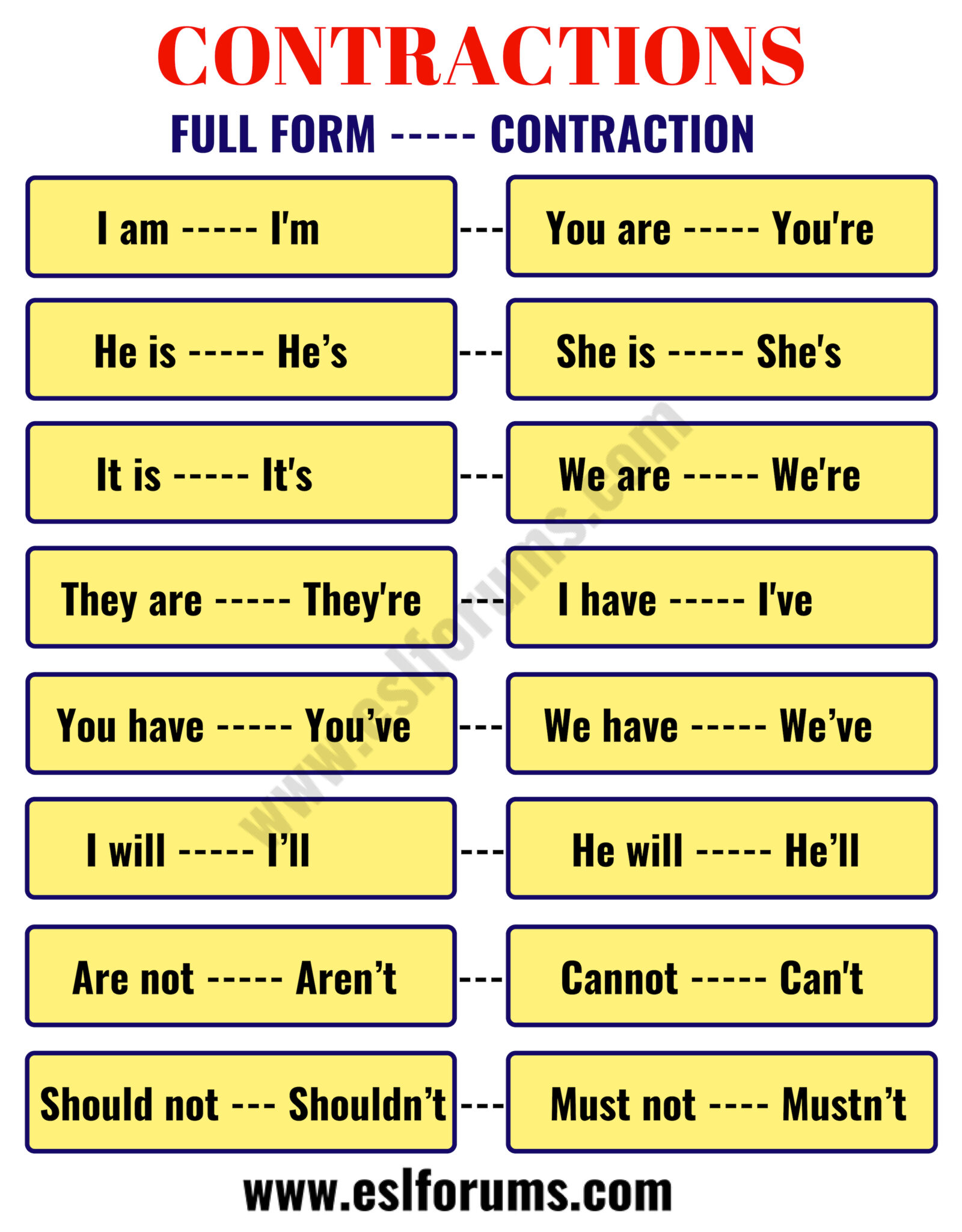

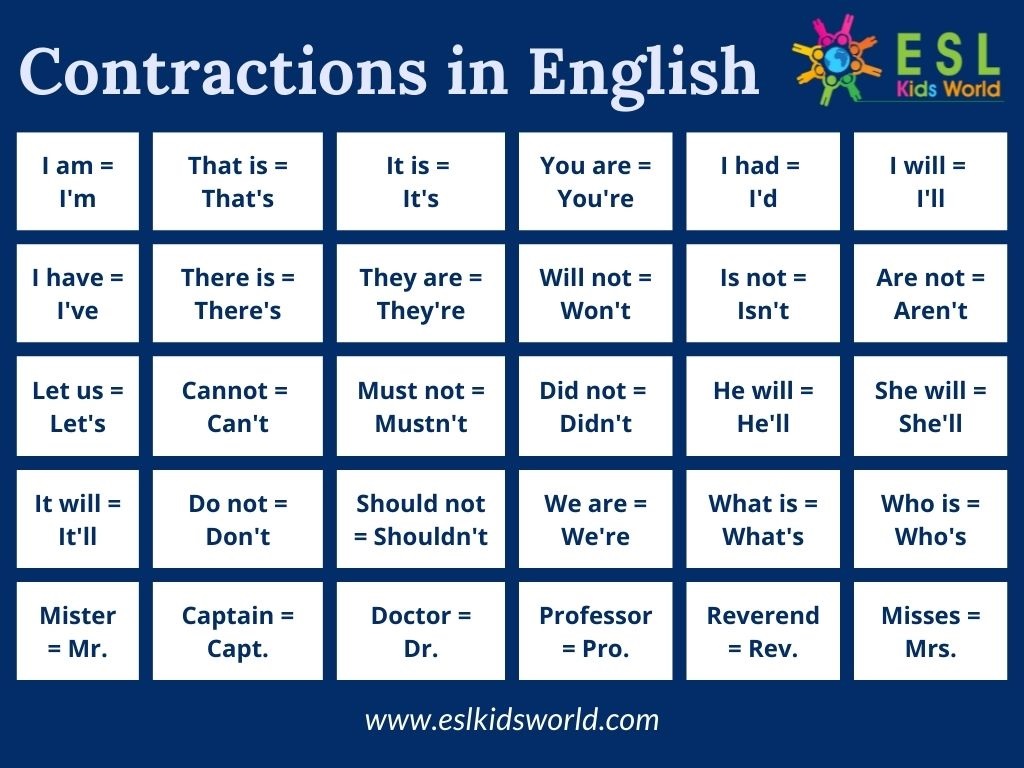

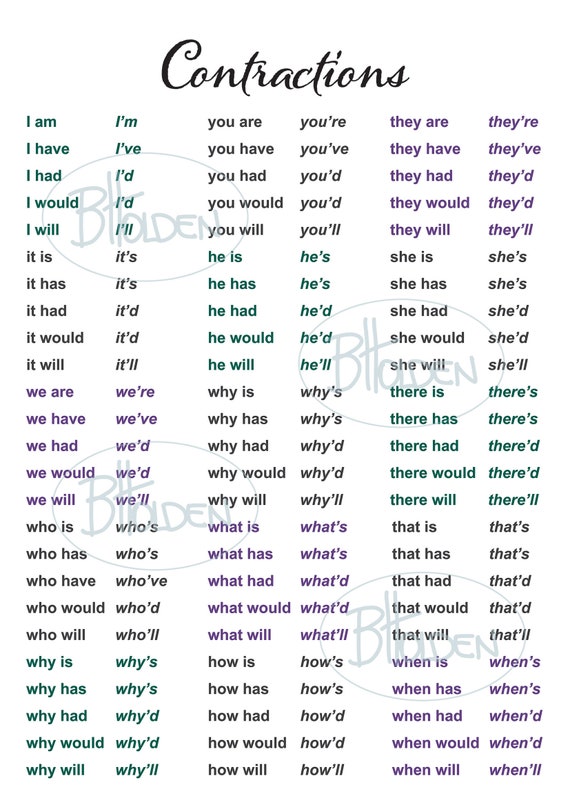
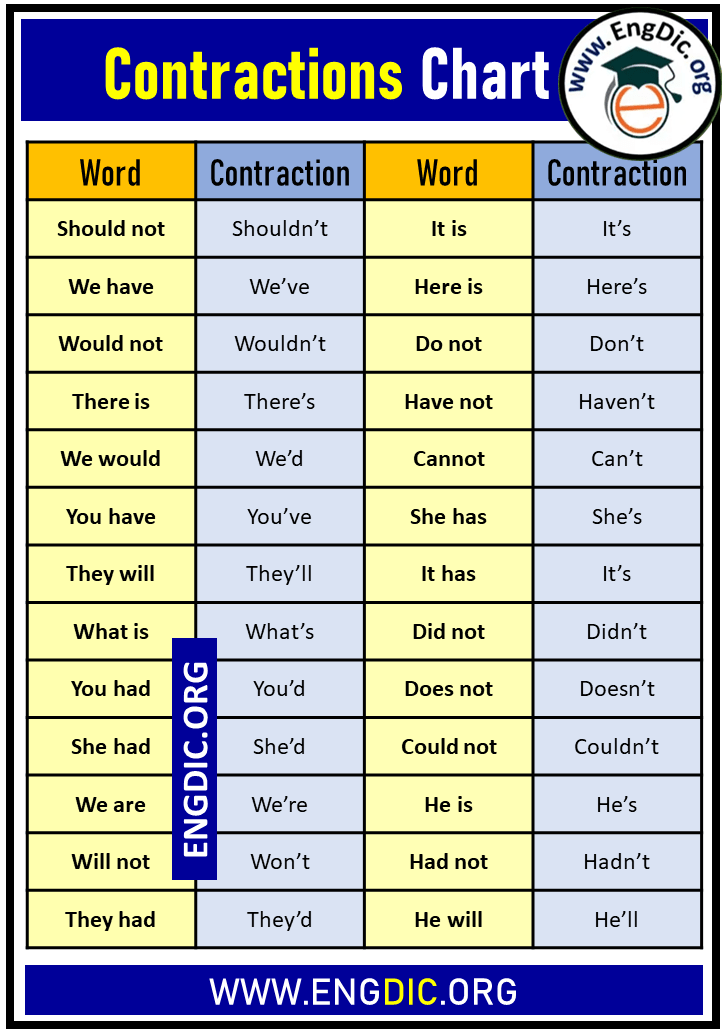




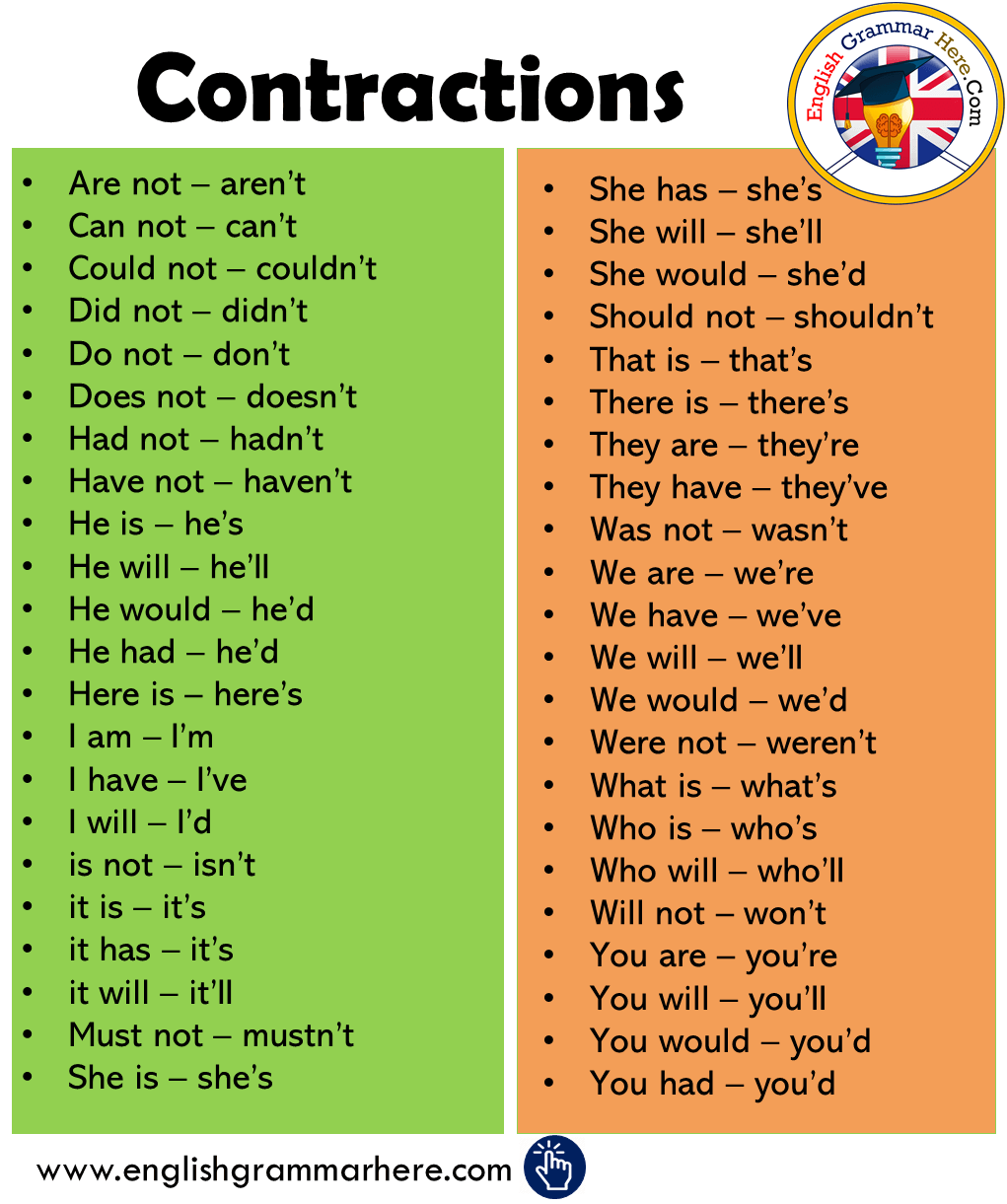

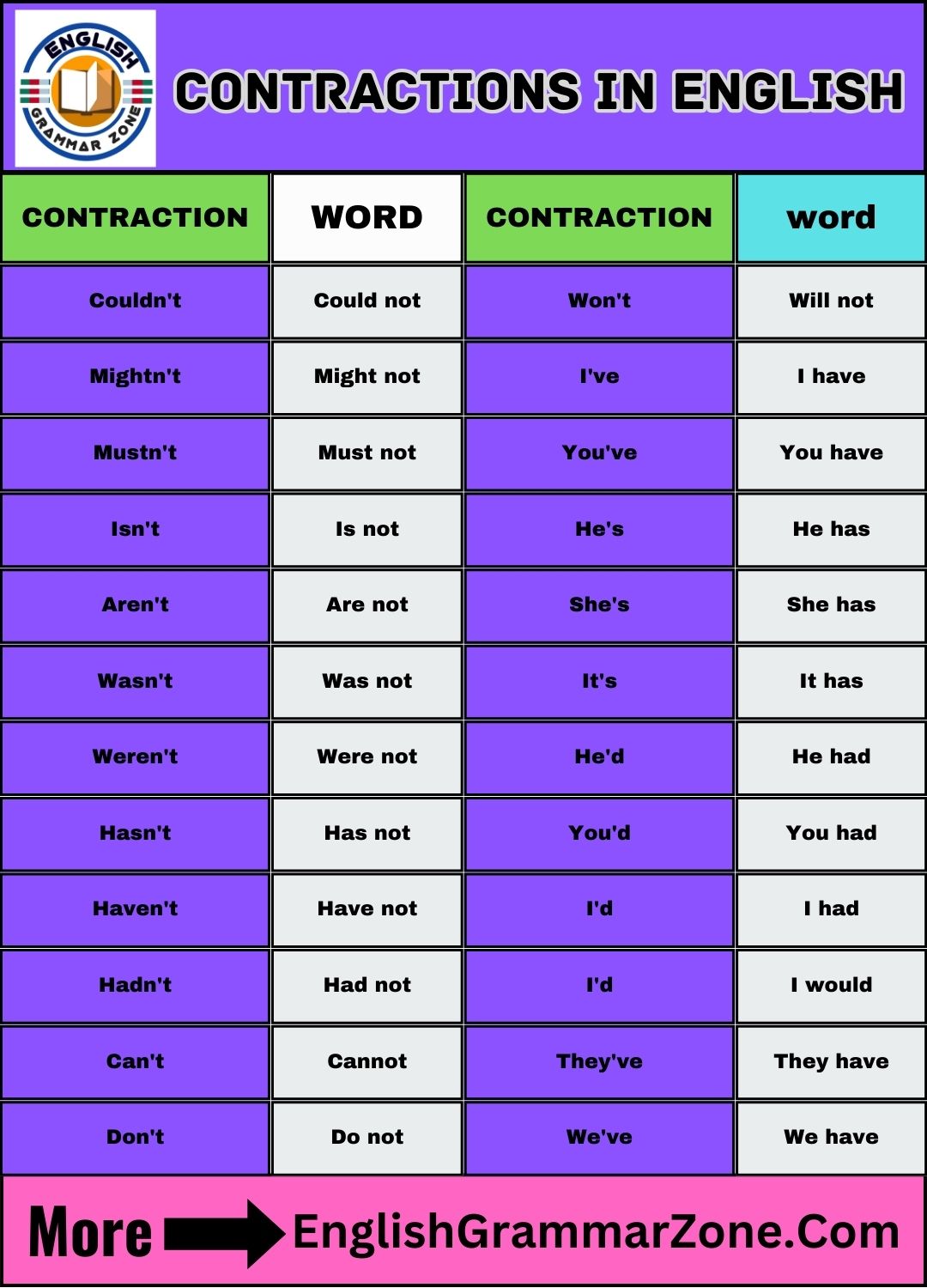


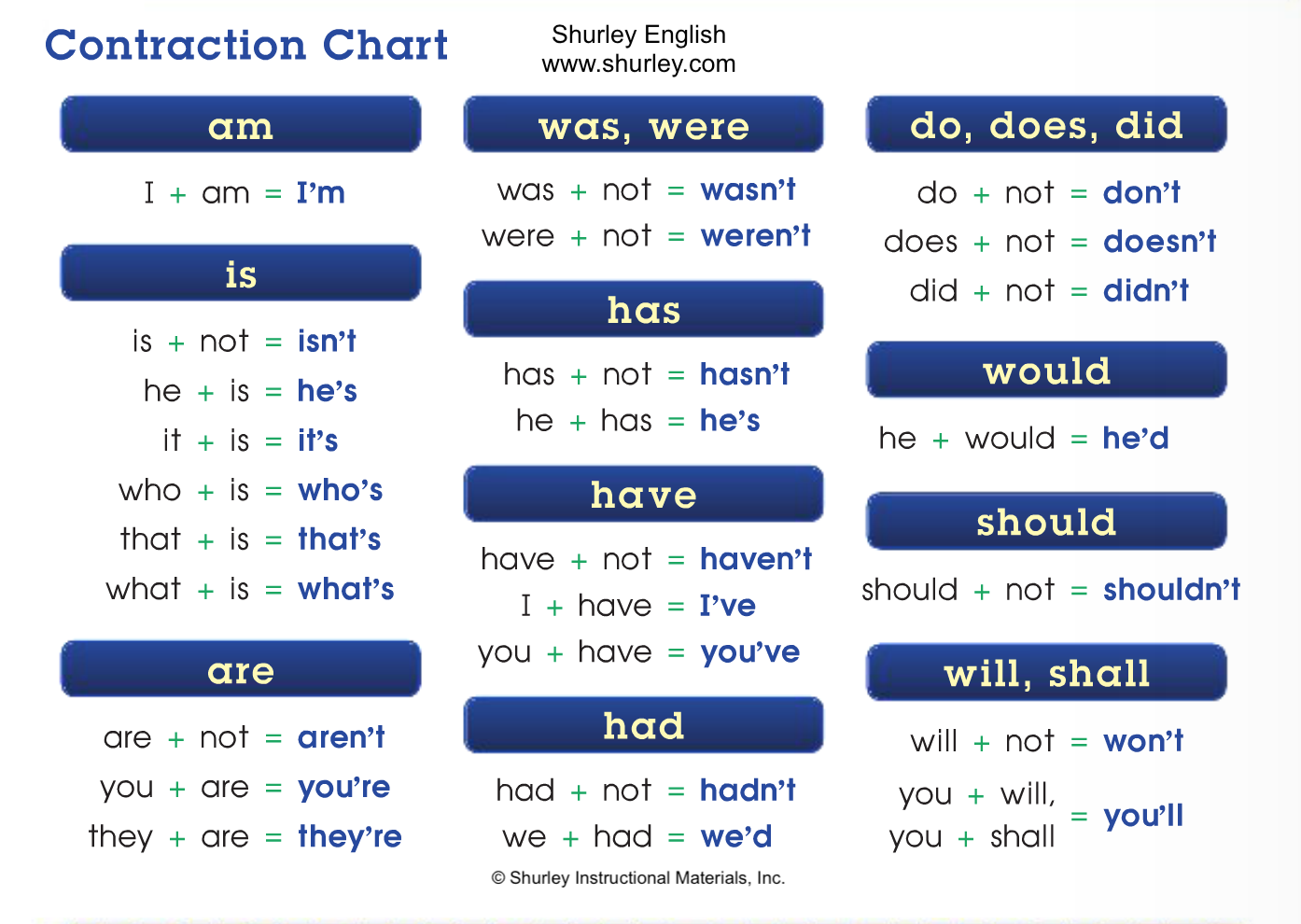

/contractions-commonly-used-informal-english-1692651-v1-8415dc9952f04e08b9d5259e167e0051.png)

